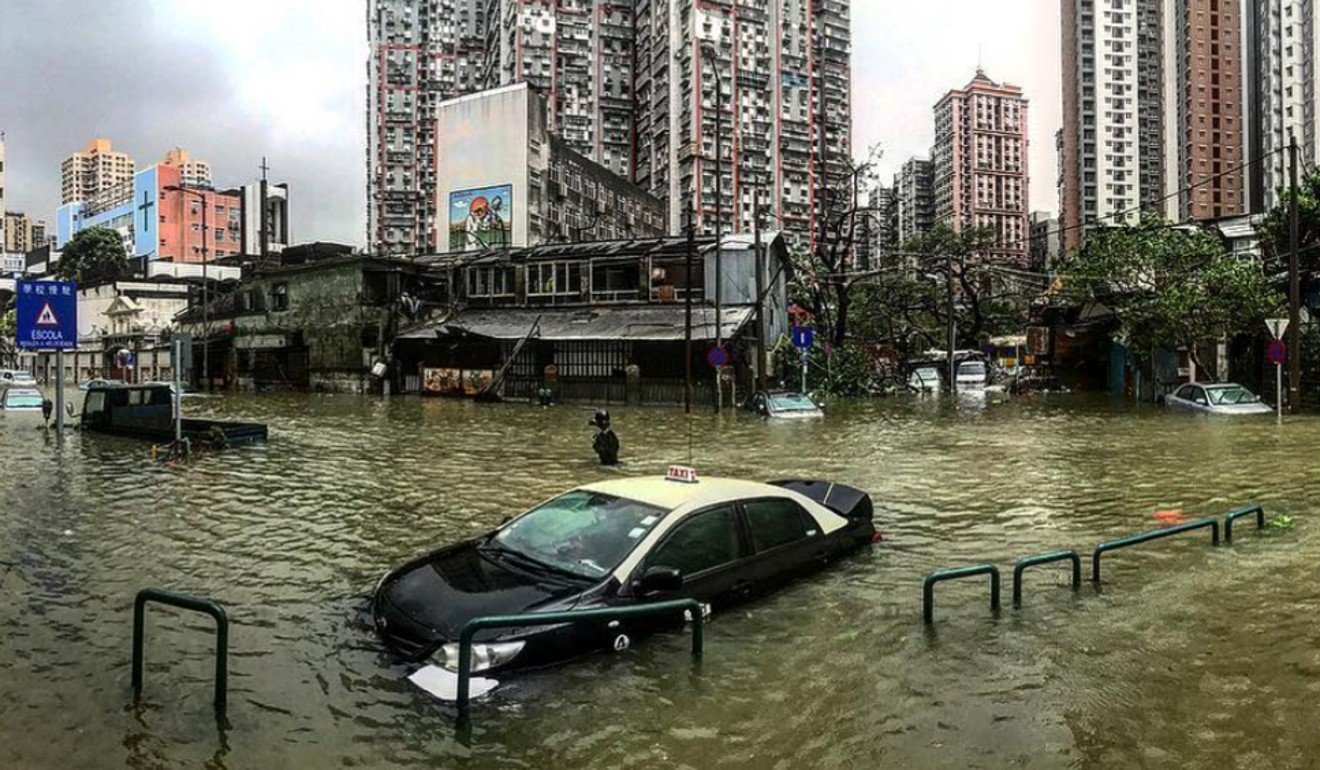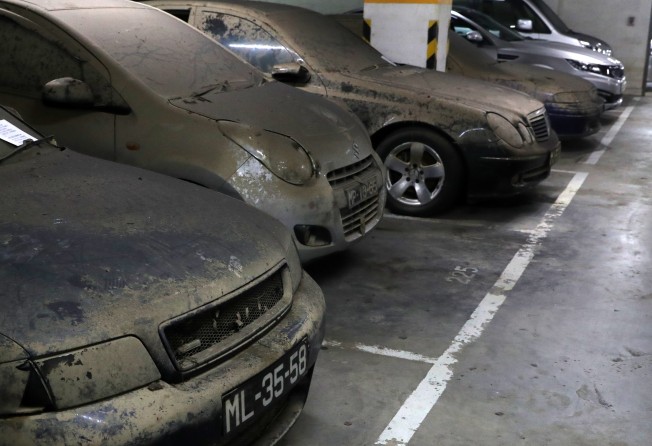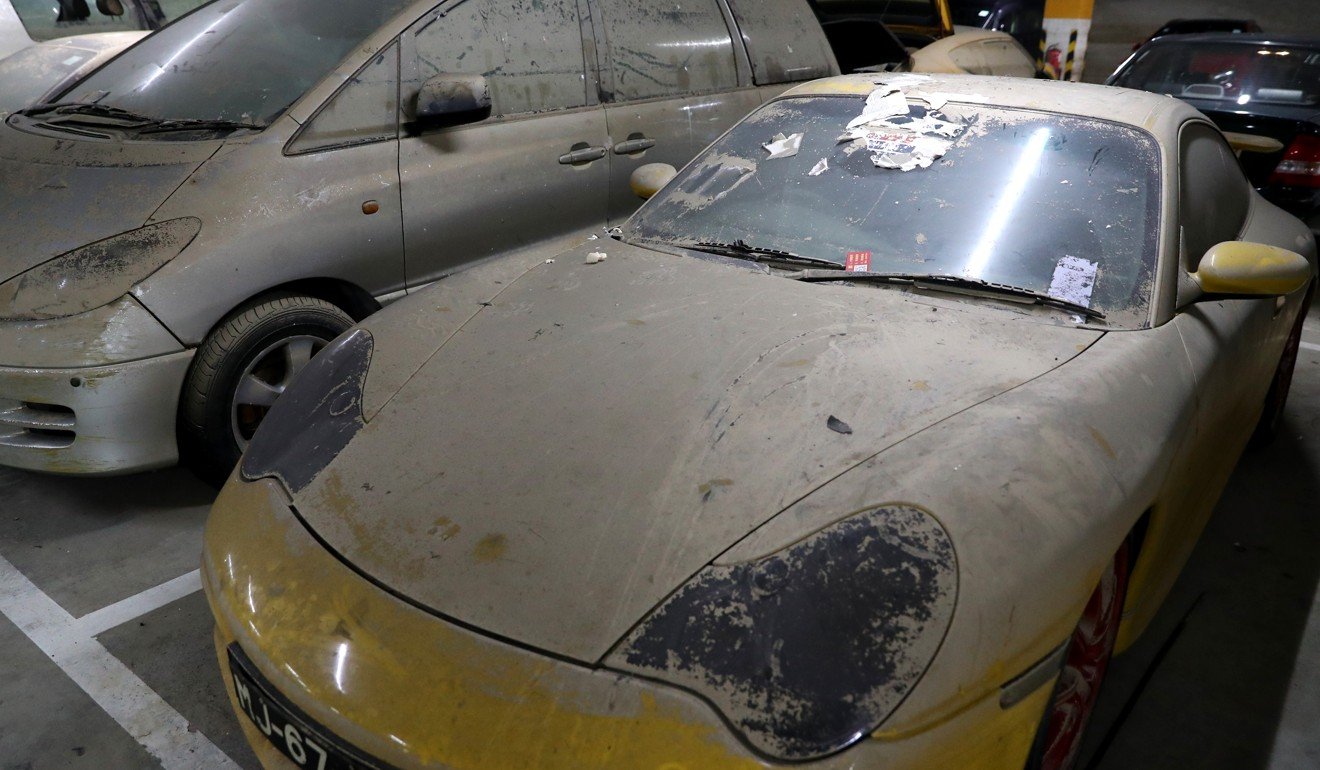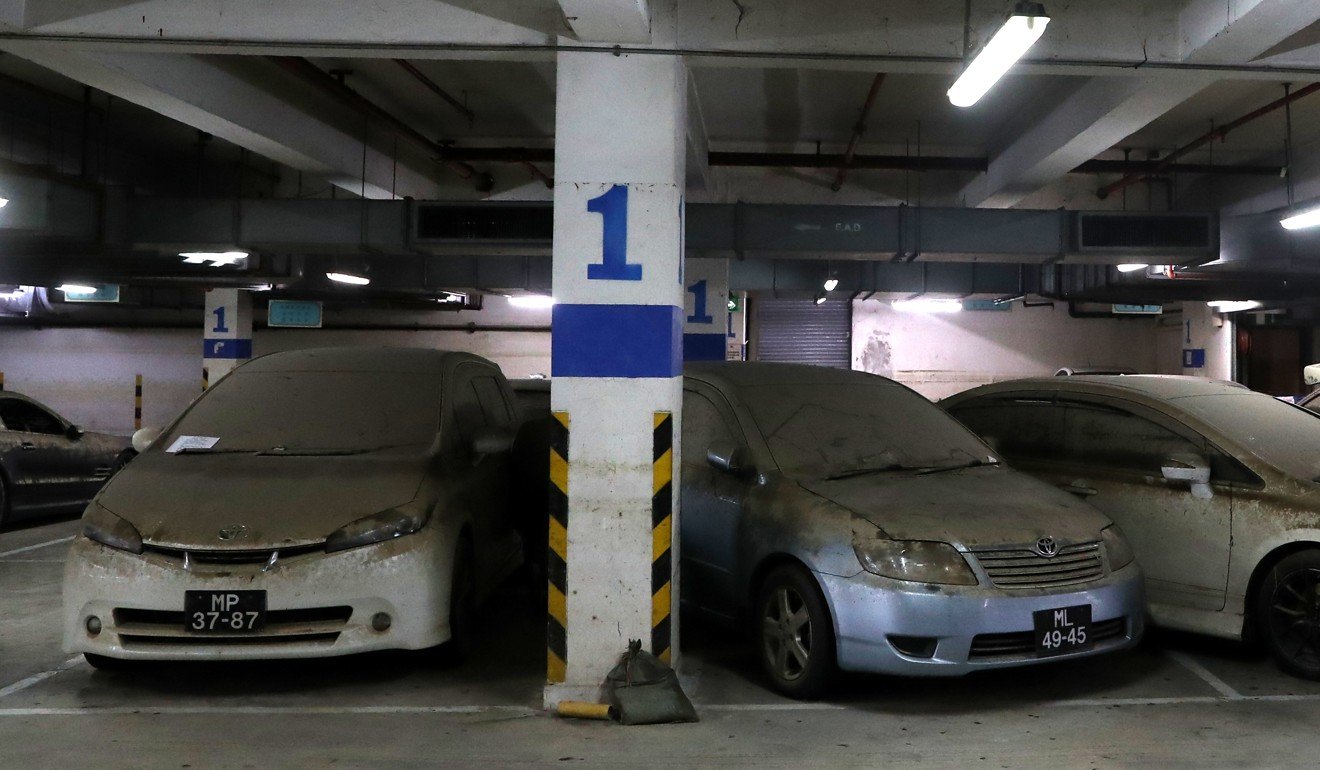
Macau seeks to help owners of cars wrecked in Typhoon Hato – by requiring them to buy new wheels in vehicle-packed city
Calls for rethink of policy as tiny casino hub reels from insufficient infrastructure to handle car population and those damaged by floods

A festering pile-up of flood-damaged cars remains abandoned in the overstretched underground car parks of Macau almost a year after the city was ravaged by the most deadly storm it had seen in decades.
This August sees the first anniversary of Typhoon Hato which claimed the lives of 16 people and led to troops from the People’s Liberation Army deployed on the streets of the former Portuguese enclave for the first time to help in clean-up operations.
But, as photographs published on Sunday by the South China Morning P ost show, while the highly lucrative wheels of the world’s richest gaming destination continue to spin, the fallout and financial wrangling from the killer storm has not gone away.

The car wrecks – some from Typhoon Hagupit of 2008 and many “parked” in a privately-managed government car park near the city’s border gate with Zhuhai – are likely to fuel increasing public anger in a tiny city close to gridlock with too many vehicles and too little infrastructure to handle them.
Following the chaos last year after Typhoon Hato, Macau Chief Executive Fernando Chui Sai-on made a public apology and announced the resignation of its weather chief. Chui admitted his administration had been ill-prepared for the mega storm.
In a bid to quell concerns, the Macau government announced a vehicle tax rebate plan for owners of typhoon-stricken cars, with two main stipulations: the vehicle in question had to be deregistered by the end of September 2017 and the owner must buy a new vehicle.

Details of the plan are still under discussion and lawmakers in Macau have told the Post that by the end of the qualifying period 6,500 vehicles had been deregistered.
Sulu Sou Ka-hou, Macau’s youngest lawmaker, who hopes to return to the Legislative Assembly after a long-running legal battle which saw him suspended, said: “The government is definitely not doing enough to help car owners. It took too long to come up with the plan.

“Also, the plan does not help everyone because people need to buy new vehicles to benefit from the scheme.”
Sou, of the pro-democracy New Macau Association added: “It is not fair. The government says the scheme is not a compensation plan. It shows that they don’t want to bear the responsibility.”
The government says the scheme is not a compensation plan. It shows that they don’t want to bear the responsibility
The issue of wrecks in the typhoon aftermath comes amid a growing row over the huge disparity between the number of cars and motorcycles registered in Macau and the number of available parking spaces.
According to official statistics, at the end of 2017, a little more than 8 per cent of Hong Kong’s population – which is more than 10 times that of Macau – owned a private car or motorcycle. The equivalent figure for Macau, which is also much smaller geographically, was just under 37 per cent.
Amid its transport infrastructure problems, a much-delayed light rail system is still under construction.
Last week, transport officials in the casino hub proposed doubling fines from 300 patacas (US$40) to 600 patacas because of a surge in illegal parking in the vehicle-packed city.
The announcement sparked a public outcry and anger over the severe shortage of parking spaces. Only 51,000 legitimate parking spaces are available for the 124,000 registered motorcycles in the city. A parking space figure for cars was not available.
Sou’s fellow pan-democrat lawmaker, Au Kam-san said: “It is difficult to tell after 10 months which vehicles were destroyed in the typhoon.
“There are already too many cars in Macau, but this scheme requires citizens to get new vehicles in order to get the tax refund benefit. Cash compensation would be a lot better.”
The director of Macau’s Transport Bureau, Lam Hin-san, said last week an additional six public parking areas would be opened by the end of this year, offering an extra 4,500 parking spaces for both public and private light vehicles.
“I estimate that the total number of parking spaces from public parking lots for cars will exceed 20,000, while the parking spaces for motorcycles in public parking lots will be more than 10,000,” Lam said.